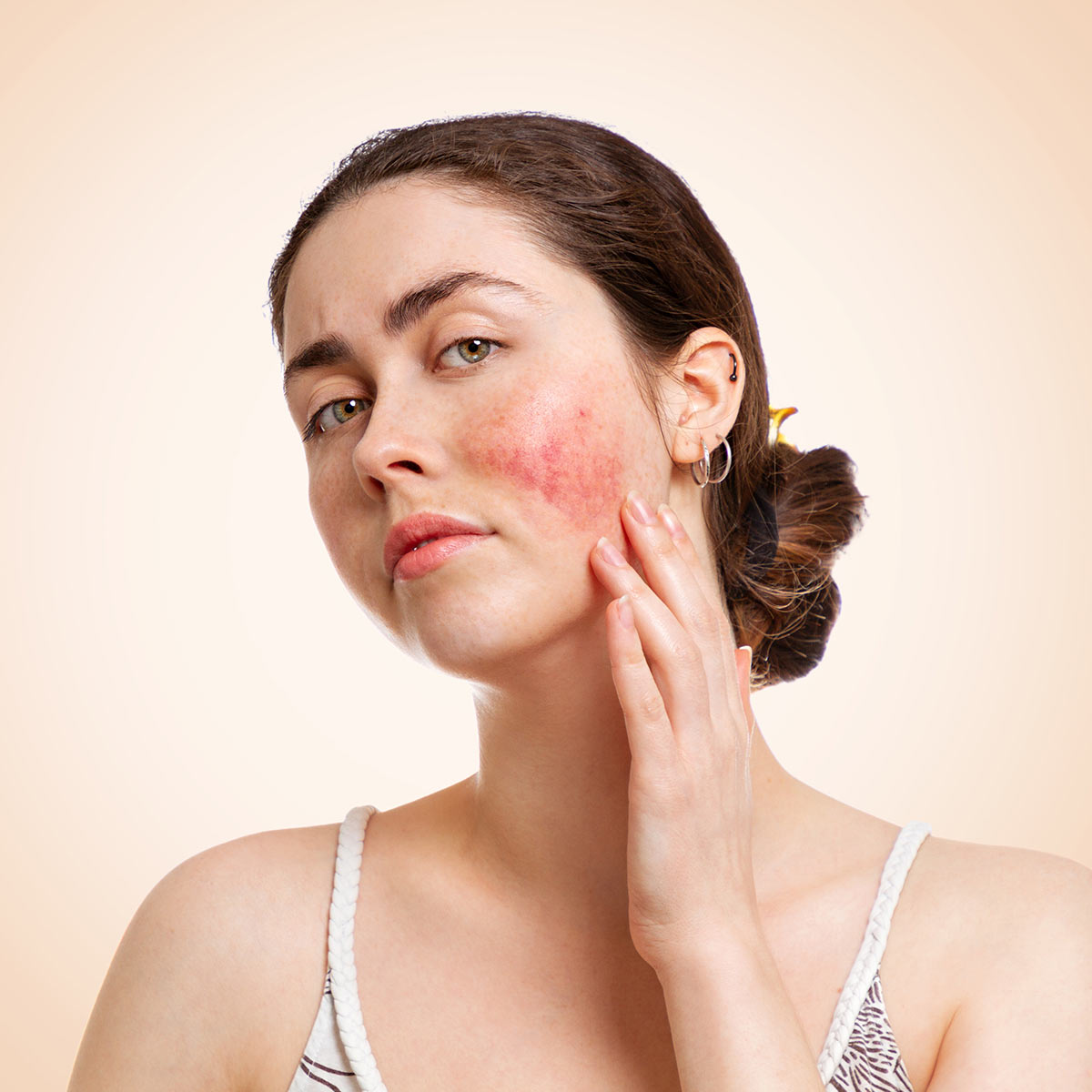
Rosacea is a chronic skin condition that primarily affects the skin of the face, usually appearing as red splotchy blotches. Rosacea does not a definitive cause, our best science, however, points to several factors, including genetic (rosacea often runs in families), bacterial (exposure to a certain bacteria causes skin to overreact), and an overactive protein (cathelicidin) that normally protects the skin from infections.
About the condition
What is rosacea?
Rosacea is a chronic skin condition that primarily affects the face and sometimes the eyes. It is most common in fair-skinned individuals, and ages 40 to 60. More women than men experience rosacea. At Valley View Dermatology, we know that rosacea can greatly impact self-image and quality of life. That’s why we offer advanced treatments to help manage its symptoms and restore confidence in your appearance.
Rosacea typically shows up on the face — nose, cheeks, forehead and chin — and is characterized by:
- Redness — like a flush or blush that does not go away.
- Dilated blood vessels
- Bumps — sometimes pus-filled — that can look like acne
- Rashy skin
- Hotness or burning sensation
When should I see a dermatologist about rosacea?
Rosacea has at least four different subtypes that manifest and behave differently in each person. Self-medicating with over-the-counter treatments can sometimes aggravate the situation, so this condition should always be evaluated and treated by a dermatologist. While there is no cure for rosacea, our board-certified physicians will help you diagnose your rosacea correctly and determine which treatments will best control the symptoms and avoid long-term skin damage.
Schedule an appointment
Take the first step today: book an appointment at the clinic that’s convenient for you. We look forward to creating a personalized treatment plan give you healthy, glowing skin.
Call 971-374-2150
